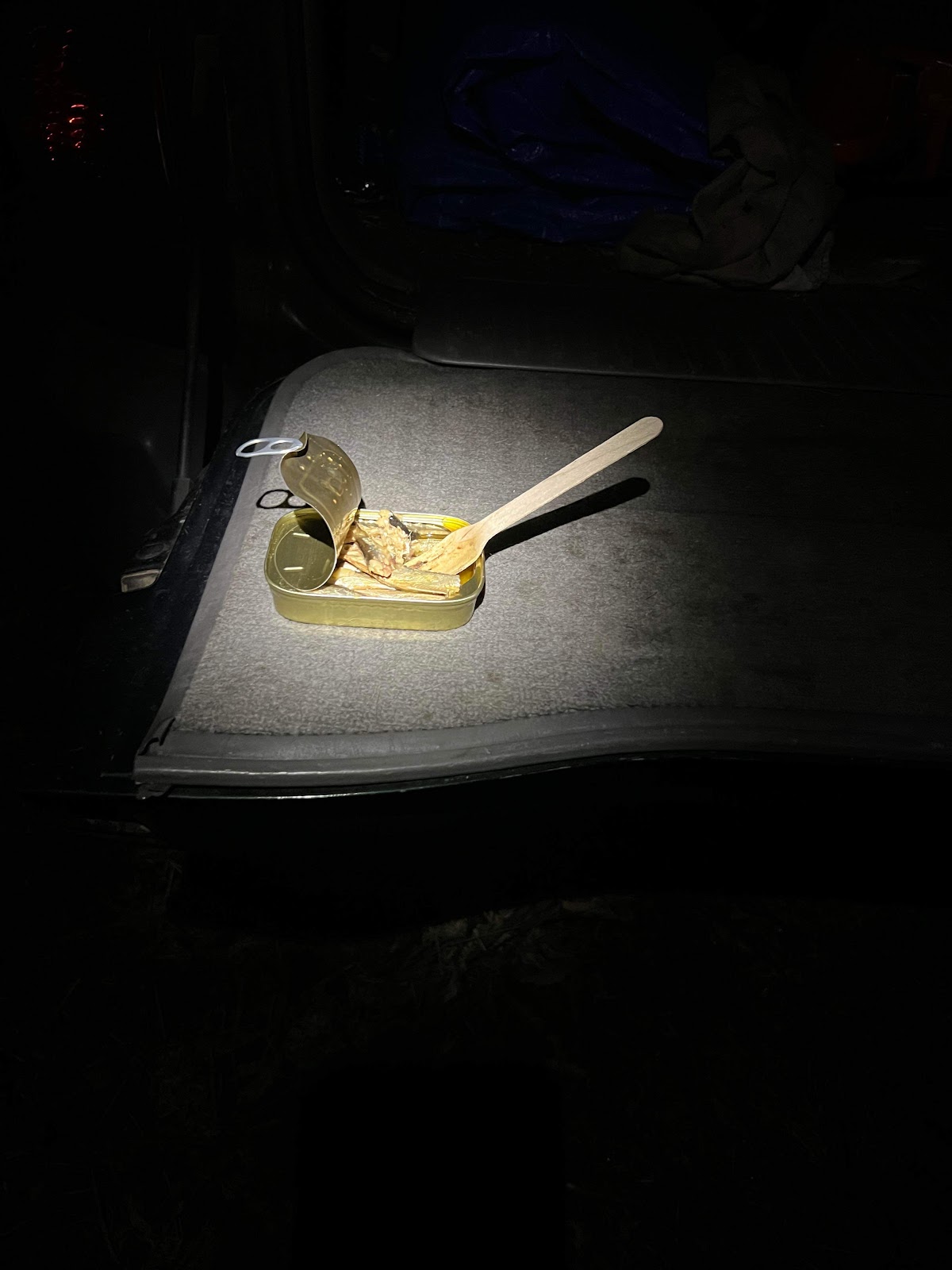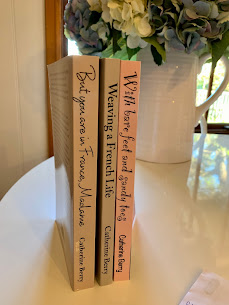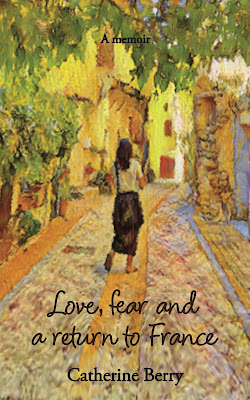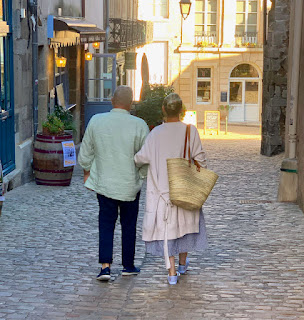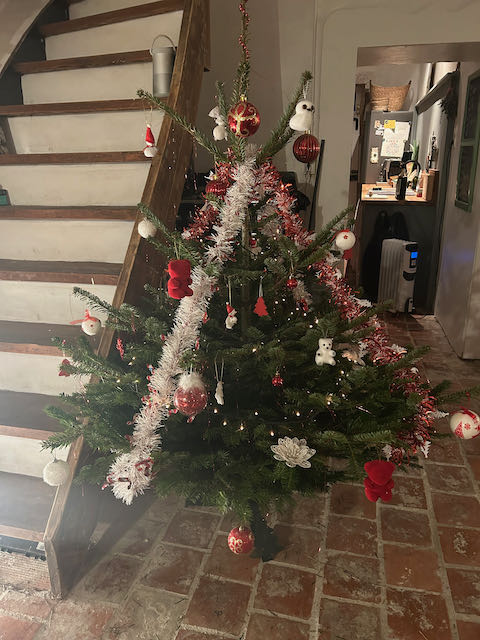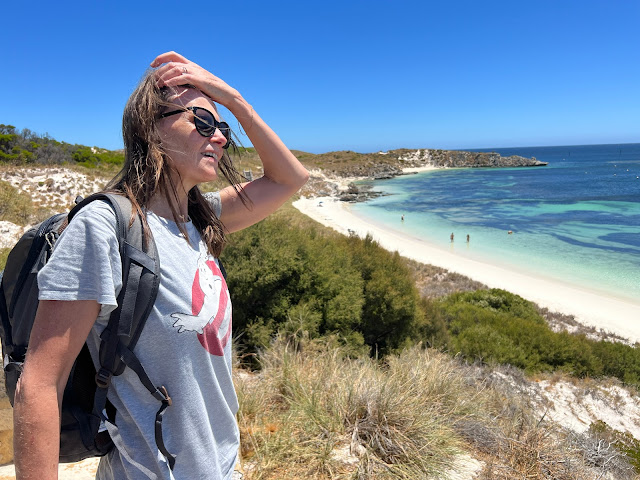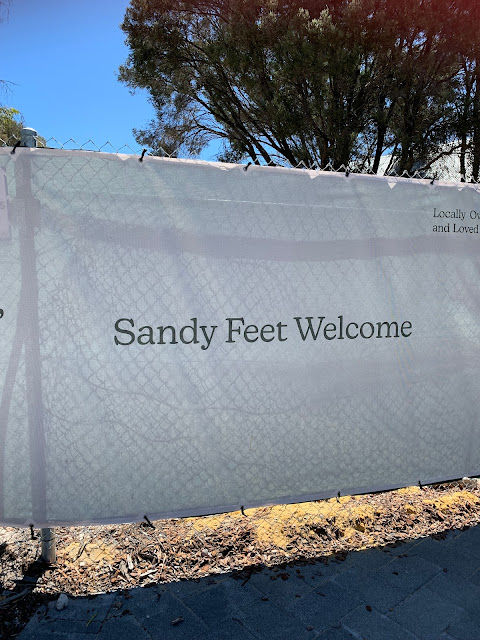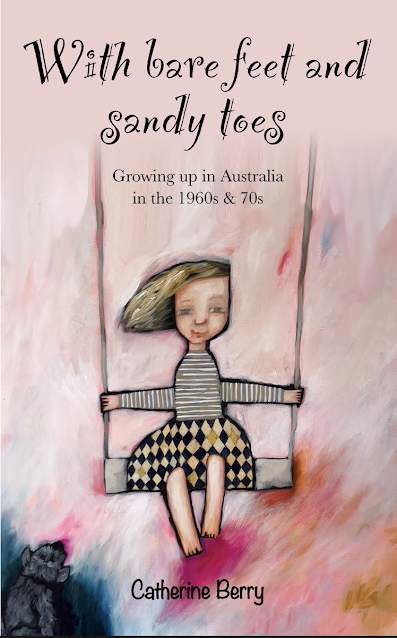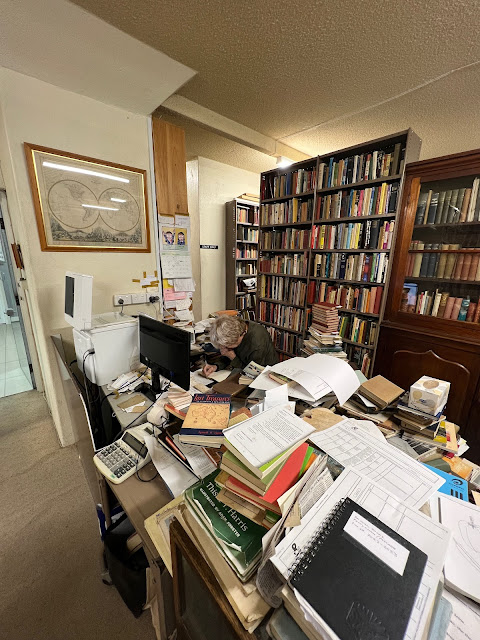 |
| Kate's home in Lucenay-l’Évêque in Burgundy |
Kate, it has been lovely connecting with you. Thank you for participating in my occasional series, ‘Australians in France.'
Can you tell us about yourself and your French connection?
I really discovered France later in life. My first trip to Europe was at 41, with Paris being our first stop. It was definitely love at first sight. Since then, my husband Nathan and I have been lucky enough to spend time exploring many regions of France, especially those noted for their food and wine. As a chef, Nathan looks to France and French cuisine as the foundation of modern cookery, and we have embraced our quest to experience as much of it as possible with great gusto! Our travels throughout France have provided inspiration for multiple hospitality venues that we have been involved in - a tiny laneway wine bar, a French bistro and a neighbourhood café. We love that we have been able to bring a little piece of France back with us to share with others and to help us not miss France as much when we are not there.
 |
| Kate and her husband in their garden |
You have bought and are renovating a property in France, do you live in France or spend some of the year there?
We take full advantage of the Schengen visa that allows non-EU passport holders to spend 90 days per 180 in France. That means that we are in France for 6 months of the year and in Geelong for the other half.

Can you tell us how you settled on Burgundy for your French home?
We love many regions of France and toyed with the idea of buying in Normandy (good proximity to Paris) or in the Jura (fabulous wine) but Burgundy has it all for us. We love its scenery, its easy access to Paris, Dijon and Lyon and of course its iconic food and wine offerings. The weather is idyllic for us too … four very distinct seasons with warm and pleasant summers and crisp, cold winters.

What advice would you give to other families who dream of buying their own special place in France?
DO IT! It’s incredibly exciting and rewarding and relatively easy. Coming from Australia, where housing prices and the cost of living is high, we found that you can actually achieve your dream of owning your own little piece of France very affordably.
Have your criteria on size, price, region etc. but be a little open and flexible. Your dream home may be where you least expect it.
Do you have any practical tips regarding the purchase process?
Have the patience of a saint. Nothing happens quickly. French real estate agents (Immobiliers) are more relaxed and not always as responsive as ones in Australia.
Make as many appointments as you can to see properties in person whilst you are in France. We made our purchase online from Australia and had only photos and one video to go on.
Open a French bank account. This is not necessary for the purchase, but will have you ready to sign up for all your utilities.
Use a buyer's advocate if the agent for the property doesn’t speak English (and if your French is not up to deciphering legal documents) They will guide you through the whole process, even negotiating the sale price for you, will hold the key for you until you get to the property, and in our case, help you get your utilities set up.
The French purchase system we found does not have the big negotiation range that we tend to have in Australia. You may only get a few thousand off the asking price.
A new roof, electrics and septic are expensive works and a change in ownership may trigger having to bring existing systems up to code. Have your agent or buyer's advocate alert you to any impending costs.
If you are looking at buying purely a home for holidays, maybe reconsider buying a 5-acre farm or anything with a lot of land involving upkeep. The grass and weeds can grow at a staggering pace. We know this first hand with our property.
If you are considering buying in a rural area, make sure that your land boundaries and right of access for you and your neighbours are explained to you very clearly. Often plots of land are not adjoining and in many instances, the farmer or neighbour has rights to go through your property. This is to note, particularly, if you’re planning to put a pool or a garage etc.
What do you wish you had known before you signed for your French home?
Just how patient you have to be! Especially when you are purchasing remotely. We wish that we had been more aware that when the agent said that the house comes fully furnished (which most do) that he also meant that we inherited the contents of all the outbuildings as well. That in our case included copious amounts of rubbish, old white goods and a gigantic, rust-riddled bulldozer. We were quoted €2000 to remove it all.
If you can, use tradespeople that are referred to you by people you trust and ideally from your village or town. Usually tradespeople only work in a very small radius from their home base.
Might there be a renovation story or two that you could share?

SO MANY! One fun one was that we found a secret room at the back of the house that wasn’t on the floor plan that we were given by the agent. The owners had said there was something back there but that they had never entered the sealed and padlocked room. Nathan had grandiose visions of unearthing a priceless collection of vintage pinot noir, but all we found was a dusty small room with two dormant dormice who were not very happy about being disturbed. It has now become a candle-lit cellar lined with wine racks and with a wine cask for a table. It stays at a perfect cool temperature year round, and is filled with a lovely (although not priceless) selection of local Burgundy wine.
Is your long-term plan to welcome guests (holiday let, other experiential services)?
We want to have guest accommodation and host cooking classes and food and wine tours as soon as possible. The house and barn are being renovated with that in mind as we are dying to share our little (relatively unknown) part of Burgundy with as many people as possible.
Do you speak French? I talk frequently with families who feel that their French would not be sufficient for either living in or buying in France. What are your thoughts about the level of language required?
Un peu…..
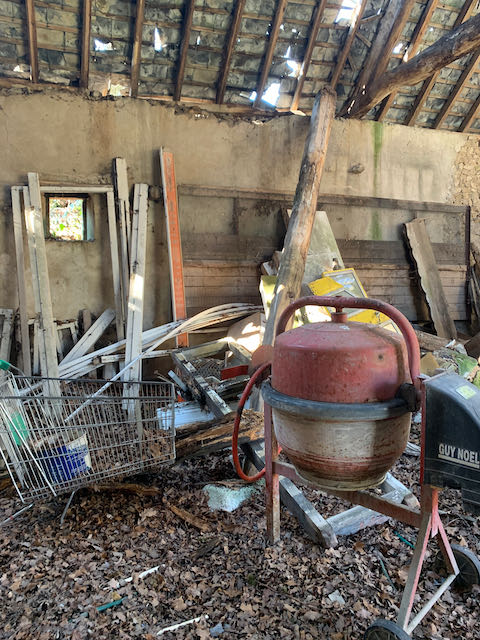 We have found that you can definitely get by with “Google Translate” BUT negotiations and renovations and friendships can be very challenging to cultivate without knowing some basic French. At the bare minimum, we feel that a basic knowledge and understanding of pleasantries, numbers and every day conversation is important in becoming a part of your new French community. Making this effort, coupled with a big smile goes a very long way.
We have found that you can definitely get by with “Google Translate” BUT negotiations and renovations and friendships can be very challenging to cultivate without knowing some basic French. At the bare minimum, we feel that a basic knowledge and understanding of pleasantries, numbers and every day conversation is important in becoming a part of your new French community. Making this effort, coupled with a big smile goes a very long way.
I love to hear of different village traditions and stories. How have you adapted to life in your village and your village to you?
We have happened upon an incredible little village on the edge of the Morvan National Park to call our own. A large number of French people have recently chosen to call Lucenay-l’Évêque home and have made a conscious effort to welcome and embrace all who follow suit. This simple town houses a primary school, a convenience store, a renowned restaurant, a locally designed handbag shop, a hairdresser, an architect's studio, a recording studio, a brocante, a wine bar and soon a patisserie. We have a medieval church that is currently under restoration, a lovely river and a town square that hosts a pizza truck on a Saturday night and a butcher on Wednesdays.
Our village has accepted us with open arms, and we are humbled to be considered a part of this vibrant community. We are routinely invited to all manner of events and celebrations - birthdays, music sessions, pig roasts, shop openings and weeknight dinners. We, in turn, host couples, families and large groups of new friends to BBQs and dinners at our little house on the outskirts of town.
Our next door neighbours are incredible. They always ready our house for our visits by opening windows and doors to air it out in summer, or lighting a fire before we arrive in winter. This past Christmas they decorated the whole house with Christmas cheer, and topped it off with a real Christmas tree covered in decorations and lights. I was reduced to tears with their thoughtfulness and generosity. We are very lucky.
If you can’t live in France, what do you think is the best time of year to visit?
Oh it’s too hard to choose in our region….
Summer has exceptionally blue skies and endless sunshine.
Autumn is just stunning with the colour of the leaves in the mountains and on the vines.
In the colder months, our countryside turns into a stunning, snow-covered winter wonderland.
We have yet to experience a full spring in Burgundy, and are anxious to see this area come back to life from its sleepy winter.
We will say from experience that we feel it’s a good idea to avoid Paris in the height of summer as it can be very hot, and many restaurants and small shops are closed for the holidays. We also wouldn’t choose to go to Alsace again in summer, where the wonderfully rich regional food and wine is definitely more suited to snowy winter days than hot summer ones.
Apart from your special region in France, do you have any favourite French places that you would recommend to other families?
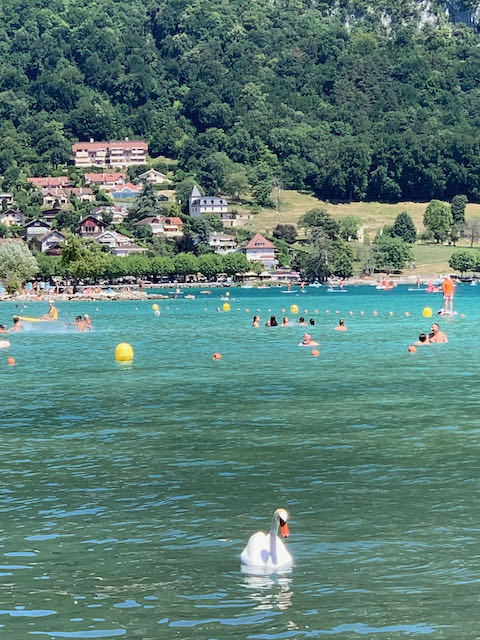 |
| Lake Annecy |
Annecy and it’s lake. It is staggeringly beautiful and clean and the views will stay with you always.
Normandy and Brittany. Lovely winding roads with beautiful scenery and stunning coastline (oh and the oysters!).
Jura. Again, beautiful scenery and picture-postcard villages, with really interesting unique regional wine.
And finally, what is your favourite thing about French living?
For us, it is specifically French country living that we love so much. It is the slower pace of life, the scenery, the markets and their magnificent local produce, the affordability of food and wine and the ability to cultivate relationships with those with whom we come in contact..
Thanks so much, Kate. I look forward to staying in touch. It has been a pleasure chatting.
If you would like to follow her journey (highly recommended), Kate can be found on Instagram @lapetitemaisonburgundy.
Here again are my three books. Clicking on the links should take you to where you need to go, wherever you are in the world, to make a purchase.


